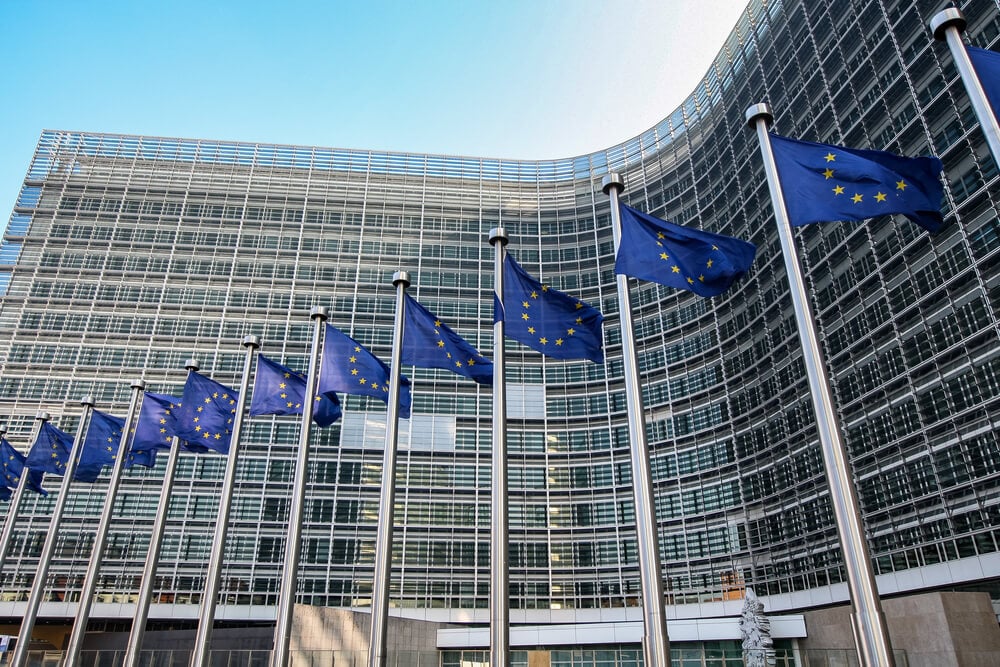The middle class has long been the backbone of democratic stability, fueling economic growth, affirming institutional legitimacy, and transmitting civic values.
But in recent decades, the middle class has been disintegrating across the West.
Many citizens believe that hard work no longer pays off, social mobility is a pipe dream, and governing “elites” are detached from the needs of ordinary people.
From France to Britain to the American Rust Belt, the symptoms are the same: regions gutted of the industries that once sustained them, livelihoods upended by technological shifts, and families working more for less.
In France, one in five middle-income households now spends more than it earns. In the United States, the average wage had roughly the same purchasing power in 2018 as it did four decades earlier.
But the economic data are only part of the story. Behind the figures charting stagnating wages or the shrinking ranks of the middle class are real households, in real communities, across the industrialized world.
In France, wealth, education, and opportunity are concentrated in a few major cities; the rest of the country – rural areas and small towns, including those that were once industrial hubs – is increasingly characterized by declining living standards and political anger.
The situation is similar in the US. While urban-renewal initiatives have revived some cities in the Rust Belt, such as Pittsburgh and Detroit, countless towns, stripped of decent jobs, continue to decline amid a collapse of social and civic trust.
Symptoms of long-term neglect
Such dislocations are not an unavoidable side effect of progress, but symptoms of long-term neglect.
When elites retreat to globalized enclaves and abandon place-based responsibility, they sever the social contract. A popular backlash should surprise no one.
But what kind of backlash? When young people grow up in forgotten towns, with frustrated fathers and uncertain futures, they are often driven not toward revolution, but toward resignation and despair.
And urban elites should take note: when this melancholic drift (poignantly captured in the novels of Nicolas Mathieu) causes the social fabric to fray somewhere, it eventually unravels everywhere.
AI-enabled automation is likely to displace middle-skill jobs
AI now risks accelerating this process. Recent research shows that AI-enabled automation is likely to displace middle-skill jobs – especially in administration, logistics, and customer service – while concentrating gains among highly skilled professionals, such as those with high-level digital skills and access to global networks.
Far from a tide lifting all boats, AI may be a tsunami that sinks many and spares few.
Marshall Plan for jobs, skills, and justice
But this is not a foregone conclusion. AI has the potential to boost wages and improve productivity in public services, education, health care, and small businesses, but only if its development and deployment are guided by bold and inclusive policies.
What is needed is not adaptation or adjustment, but ambition, in the form of a transformative economic and social strategy – a Marshall Plan for jobs, skills, and justice.
That means, first and foremost, a massive investment in education and training.
Every worker affected by automation should have access to funded requalification programs.
Governments must revamp technical education, expand apprenticeships, and build a new public-private infrastructure not to deliver one-time courses, but to support lifelong learning.
Supporting middle-class jobs also requires regional innovation ecosystems.
Everything from housing and health care to tax policy and mobility must be redesigned to serve all citizens
Former US President Joe Biden sought to advance this imperative with his CHIPS and Science Act and Inflation Reduction Act.
While Donald Trump has ended that approach, Europe should embrace a place-based approach to technological innovation and build green manufacturing clusters, AI innovation centers, and production hubs for strategic goods in post-industrial areas, not just urban centers.
The final pillar of this Marshall Plan is a new social contract. Everything from housing and health care to tax policy and mobility must be redesigned to serve all citizens, including those who currently feel ignored.
This includes restoring public services in peripheral areas and making sure that dignity – not efficiency – is a key metric by which success is defined.
A new generation of European sovereign bonds
At a time when European public budgets are under strain, financing this strategy will require innovative approaches.
We propose a new generation of European sovereign bonds, modeled on the NextGenerationEU pandemic-recovery fund, but longer-term and deployed more strategically.
With eurozone debt levels at around 90% of GDP – lower than in the US – and infrastructure-investment needs growing rapidly, such bonds are both feasible and timely.
 We propose a new generation of European sovereign bonds, modeled on the NextGenerationEU pandemic-recovery fund, but longer-term and deployed more strategically
We propose a new generation of European sovereign bonds, modeled on the NextGenerationEU pandemic-recovery fund, but longer-term and deployed more strategically
The issuance of such bonds would send a strong geopolitical signal: Europe can chart its own economic path, while offering global investors an alternative to volatile US Treasuries and Chinese assets.
Most important, it would directly benefit the middle class, by enabling the European Union to fund the schools, transport, housing, and digital networks that make upward mobility possible.
This is essential not only to support long-term economic growth and dynamism, but also to reinvigorate and fortify European democracy.
Although the middle class forms the core of our societies and the scaffolding that keeps our democracies standing, it is often treated as the collateral damage of inevitable progress.
But Europe can still choose its future: one owned by a few or one built by all. It has the tools to act. It needs the will to use them.
Bertrand Badré, a former managing director of the World Bank, is Chair of the Project Syndicate Advisory Board, CEO and Founder of Blue like an Orange Sustainable Capital.
Eric Hazan is Founding Partner of Ardabelle Capital and Senior Partner/Director Emeritus at McKinsey & Company.